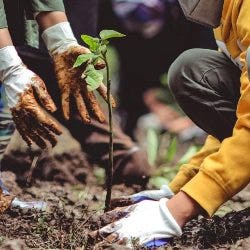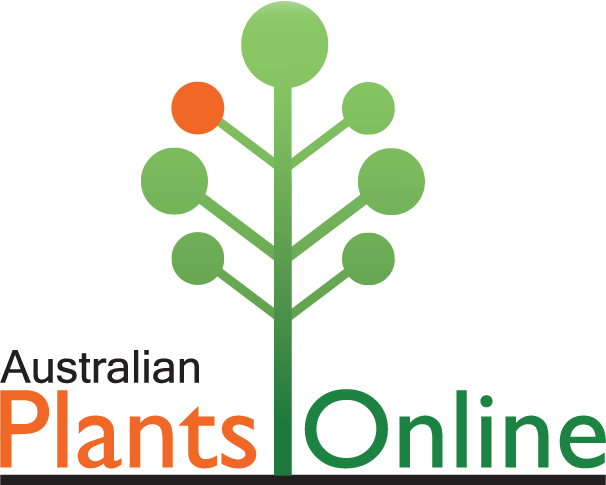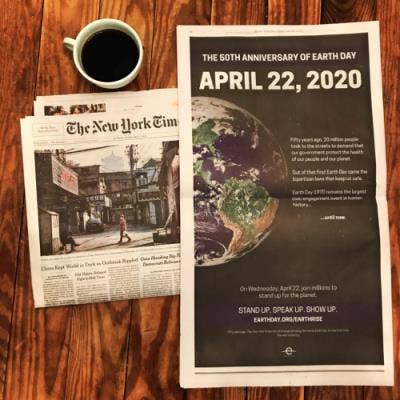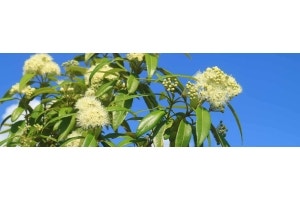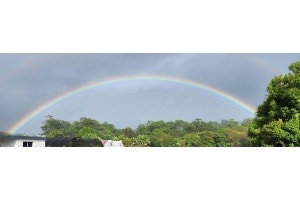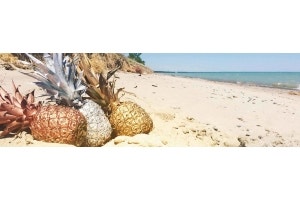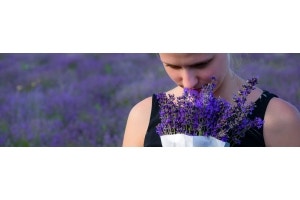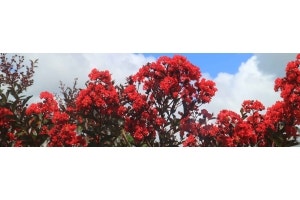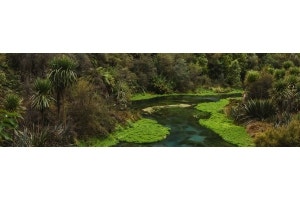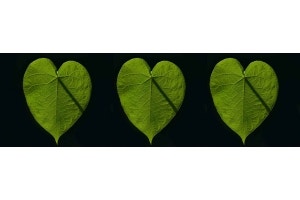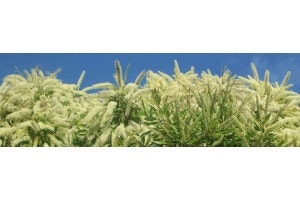
April 22 is International Earth Day.
It's over fifty years since the very first Earth Day was marked in 1970. Twenty million people took to the streets to demand politicians and businesses act to reduce their impact on the planet. Half a century later the action continues, worldwide, because the need is still there.There is no Planet B.
As the climate reaches tipping point, politicians and major corporations are slowly beginning to take action. One tiny upside of a global pandemic is realising that Mother Earth has no political boundaries. We are one world.
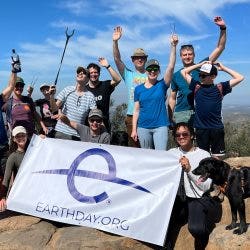
Planet Health, Our Health
We've seen, over the past couple of lockdown years, how the reduction in human activity and travel has encouraged nature to return and reclaim neighbourhoods around the world. Here's a report summarising a lot of the global research into that effect; and another, with maps to show the effect - over 30% drops in pollution and traffic and energy emissions.
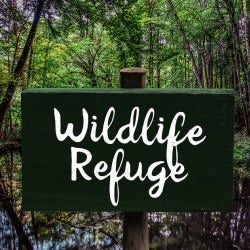
Living With Nature
One of the surprising and encouraging outcomes of recent social distancing and isolation is how the reduction in fossil-fuel energy use, and less human activity, has resulted in a return of wildlife to open areas. Whether it's fish in city rivers, endangered mammals wandering urban high streets - here's a Guardian photo gallery of some, and here's another from the BBC - or just the welcome opportunity to breathe fresh air in major cities worldwide, it shows that when humans get out of the way, nature can thrive. Unfortunately, too often, us humans do our best to get in the way.
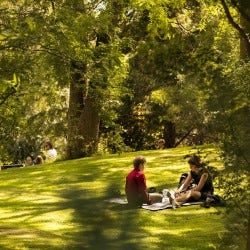
Living In Nature
If you've ever stumbled across a precious patch of green space in the midst of a bustling city, here or elsewhere around the world, you'll appreciate the feeling of refuge and escape that nature can bring us. With less traffic noise, we can hear the birdsong.Enforced lockdowns have encouraged many people worldwide to reconnect with nature and appreciate plants. This university study found more womenturning to gardening; and another more people visiting parks and open spaces, during covid.Many of us have found that spending time outdoors is really beneficial to our mental and physical health - slowing down, getting gentle exercise, appreciating the little things like a new leaf on our houseplant or a basket of fresh-picked veggies.

One Small Thing, One Big Difference
We might not each single-handedly be able to stop the ice caps melting or the bushland burning, but we can each do one little thing to help our own square metre of the planet.It might be something very simple, that takes little effort, like making informed choices with where and how we spend and invest our money; and how we vote locally and nationally.
Or it might be something more practical, like how we treat the environment around us:
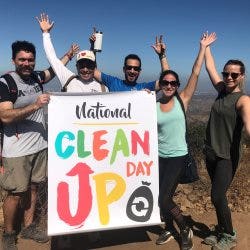
- putting our own rubbish in the bin
- walking or cycling where we can, instead of driving
- reducing our use of plastics, pesticides, non-renewable energy
- taking one small step to a Zero Waste lifestyle - there's fantastic achievable ideas on this Reddit group
- supporting a protest to protect areas of wild land against development, or encourage more sustainable business practice
- joining a local cleanup team to pick up trash from parks and beaches - there's Sea Shepherd, Tangaroa Blue, and Clean Up Australia events to join around the country, or check your local council pages for details
- helping a local bushland group to repair and revegetate a wild place - there's national programs like Conservation Volunteers, and Bushcare, Landcare and Coastcare projects;
and local ones such as Wet Tropics in FNQ, Sydney Bats in NSW, and Jerrabomberra Wetlands in ACT;
or check your state govt website, or state environment dept website for more local options - concreting a little less, and planting a little more, in our own town streets and back yards.
One single small tree can make a big difference. If every one of us plants one tree, in our own back yard or as part of a planting event, that's 26 million more trees in Australia, creating clean air, shady places, and habitats for wildlife.
